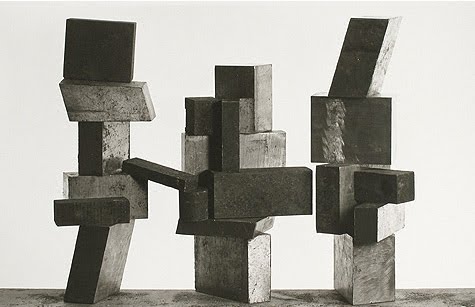Blog posts
Chapter 49: The annihilation of art
Previous Chapter Next ChapterHere’s some music for you to listen to while reading this blog:
About a week ago Daemon of Decay made some insightful observations about poetry in a comment on the latest Seattle’s Angels reviews. I’m not anti-poetry, and I don’t think he is either, but he makes a good point: Poetry has for decades been caught in a vicious cycle of self-isolation. An elite chooses experimental, inaccessible poems and fills the journals and anthologies with them. Readers drift away from poetry, deriding it as pretentious. The elite learns to associate inaccessibility with quality, and criticism with amateurism, and produces more and more inaccessible works, which it is capable only of praising, never of criticizing. Their tastes drift farther away from the mainstream, casting more and more readers out. Poetry that does not meet their criterion for obscurantism is not published; poetry that does, is not read.
You mention that to many people you know, poetry is "too difficult, too vague, or too subjective." I would argue that in many cases, this seems a very accurate description.… And likewise, poetry is often allowed to succeed where other forms of art would not. Many poems are so highly impressionistic that listeners and readers are left struggling to find meaning in the words….
With music or prose or artwork, we can point to something exact and have our opinions judged fairly. I dislike the singing; the characters are bland; the colors are mismatched and give me a headache. All valid criticisms. But when you approach poetry, criticism from the uneducated is treated as such….
For poetry to escape the taint of elitist disdain, it needs to rid itself of the shell that is formed around it. Is this a condemnation of all poetry or even most poets? No, not at all. But the popular conceptualization that poetry is a pastime for a small group of intellectuals, as unfair as it might seem, is grounded in a subjective grain of truth. For the people looking in from outside, poetry is often not some beautiful song waiting to be digested, but a pretentious chunk of purple imagery that revels in its own depth and inaccessibility. Which is, I think we can both agree, a sad state of affairs that harms those on either side of the window.
… We've all heard people say they dislike rap, or country, or dubstep; the most common response amongst those respective genres is to attempt to convert the doubter with "good" examples from that genre…. In my personal existence, poetry was never handled the same way.
This isn’t isolated to poetry. Orchestral music has taken exactly the same march into isolation and cultural irrelevance since about 1920. Jazz followed later, starting maybe around 1960. Literature started down that path with Ulysses, and Joyce kept going down it for the rest of his career.
The visual arts, meanwhile, went in a similar but weirdly opposite direction, taking the quickest and easiest route to driving away the common folk. By the 1930s, the goal in architecture, sculpture, and painting was to make everything as simple, boring, and ugly as possible. This 1938 building in Brooklyn wasn’t a slapdash cost-saving construction project; it was a celebrated design by a famous modernist architect:

And it wasn’t long ago that if you walked into a modern art museum, all you’d find would be a hundred variations on this:

and this:

That YouTube video at the top? That’s a composition by Brian Ferneyhough. My renter is a composer. He’s trying to earn enough money to go back to grad school in music composition, and Ferneyhough, he says, is widely regarded (among composers) as the greatest living composer. That piece isn’t modern at all—he composed it in 1966. 48 years ago. It represents the pinnacle of the past eighty years of orchestral composition.
To get accepted to grad school, my renter has to write something like it. He has seven folios full of his attempts.
I asked him if it bothered him that he’s spending his whole life struggling to make a kind of music that, if he succeeds, no one outside of academia will want to hear. It will never be played on the radio; it will never appear in a physical music store; it will probably never be played in a concert hall outside of western Europe. He says that this is only to be expected; few people have the intelligence to understand the greatest works in any art form.
An art form that is completely detached from culture. Isn’t that an oxymoron? Is it art, or is it a cult?
I asked him if it was an arbitrary social convention, or else if it was the next logical stage in music—if you rewound the clock and played the 20th century over again, slightly differently, would it inevitably lead to that kind of music, like geometry inevitably led to topology? He said he believes so; that Ferneyhough is not just different than Beethoven, but superior to him.
During the 1930s, the entire European artistic landscape seemed determined to drive people away from art. I think this made nationalism and fascism possible. People outside the elite sensed that culture had deliberately rejected and ejected them, and so they united to destroy it.
It's seldom a good sign to find yourself in agreement with Hitler. But if Ferneyhough is great, I don’t want to be that great.
The march to self-isolation always starts with great works by a great artist—Picasso, Stravinsky, T.S. Eliot, Miles Davis, Joyce. People imitate them, and try to take it further. Then it goes too far, and no one can admit it’s gone too far because by that time everybody in the elite power structure of that art has gone on record praising it.
Is this a uniquely 20th-century event? Has it happened before in history that the leaders of an entire art form deliberately isolated it from the masses? As far as I know, it hasn’t.
I think this couldn’t happen before the 19th century because art was funded by patrons, and the artists had to please the patrons. The patrons didn’t have careers in art, so they didn’t have to always find something new and weird to try to stay ahead of the crowd. There were professors of art and of music, but their opinions didn’t matter much.
It bothers me a lot. Orchestral music was, I think, humanity’s greatest achievement, and now we have annihilated it, and many other art forms, and no one understands why.
How and why did a single generation of artists destroy half of the West’s artistic heritage? Is there a single cause behind 20th-century elitism in music, poetry, sculpture, art, and literature? Why didn’t it succeed in literature? How can we make sure it never does? I really wish I had answers.
And I really want to know whether the stuff is actually good, and I’m just too dumb to see it. But I don't see any way of ever knowing that, even in principle.
Next Chapter: Structure: Scene+sequel Estimated time remaining: 3 Hours, 15 Minutes